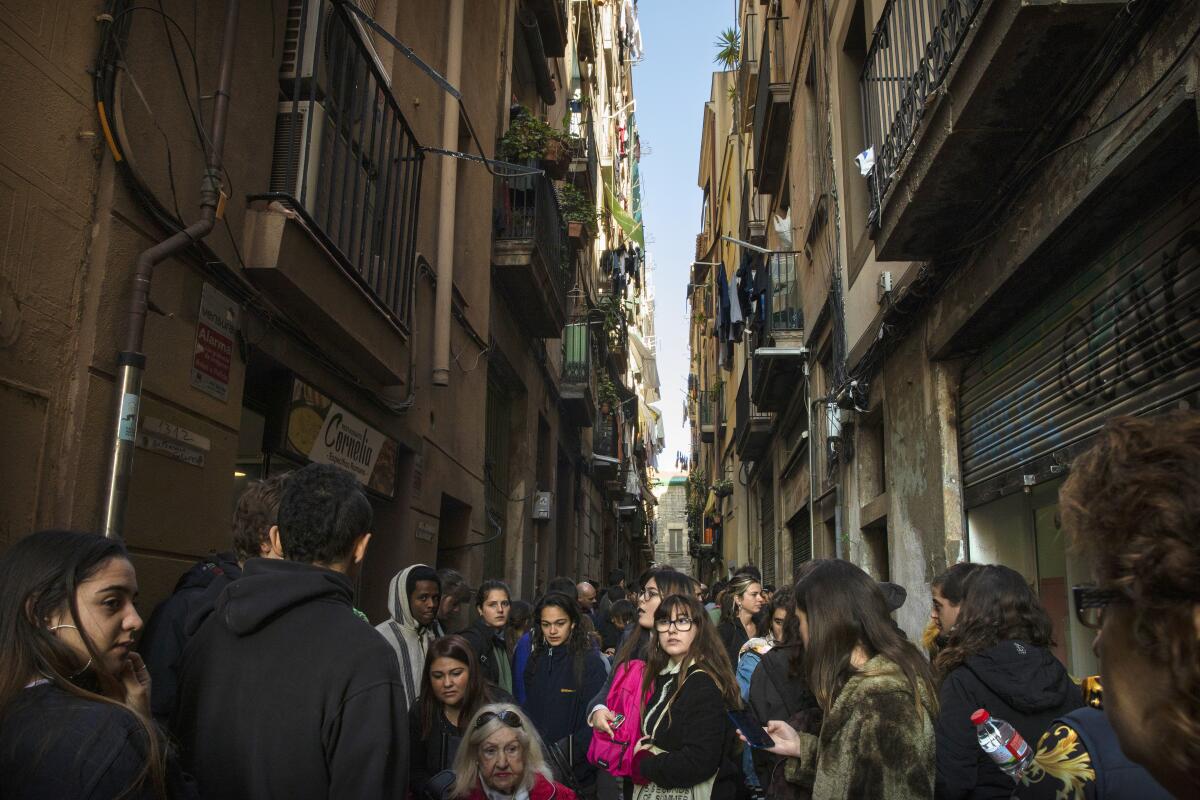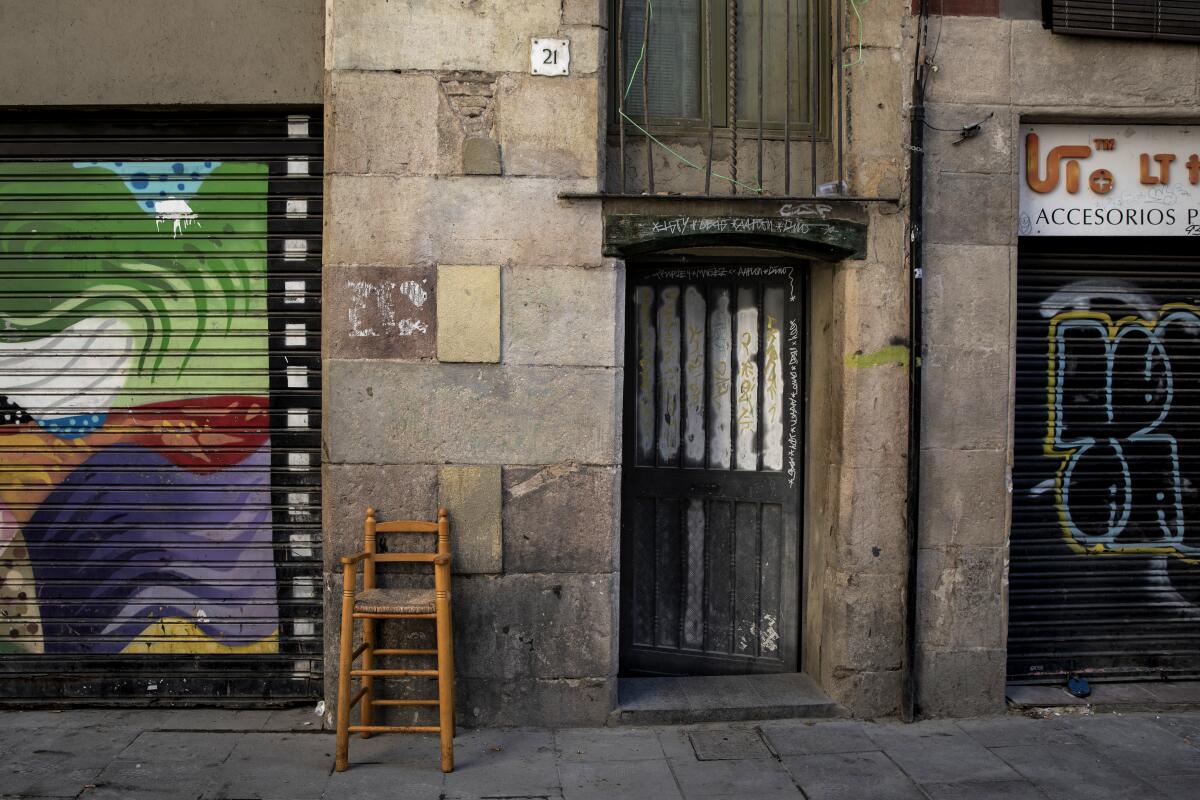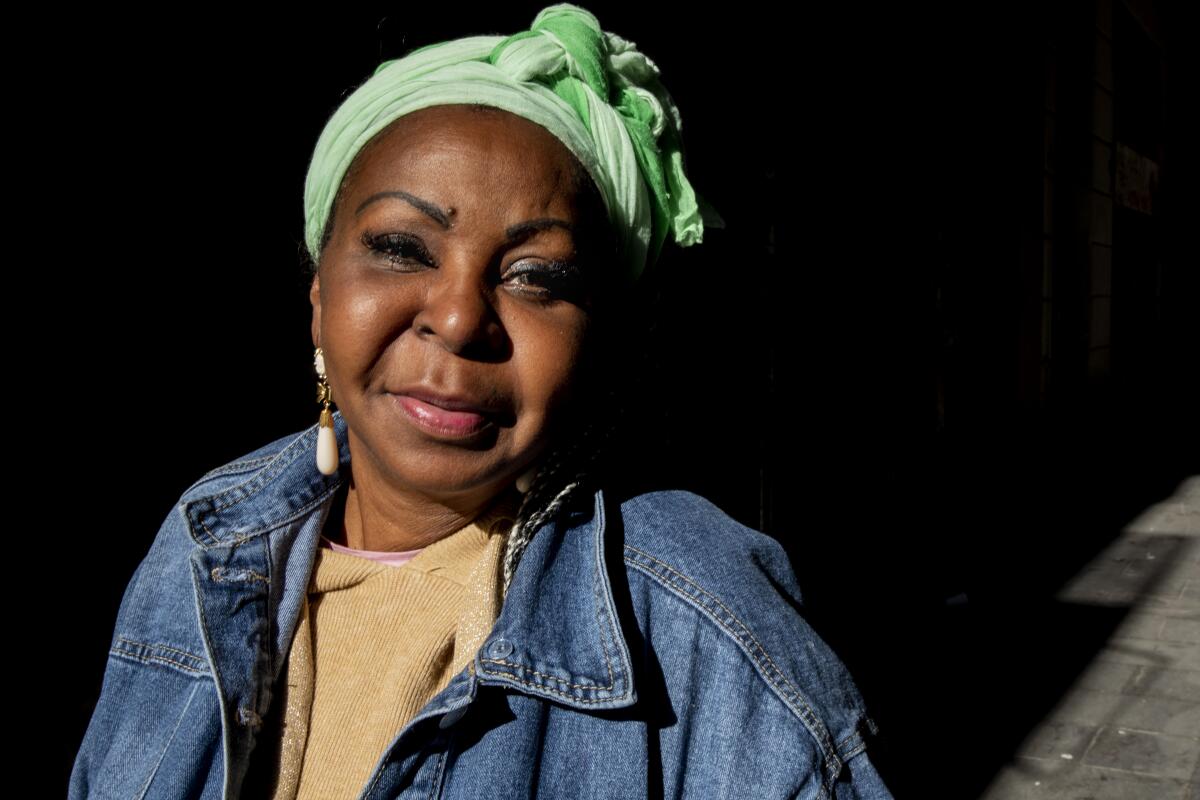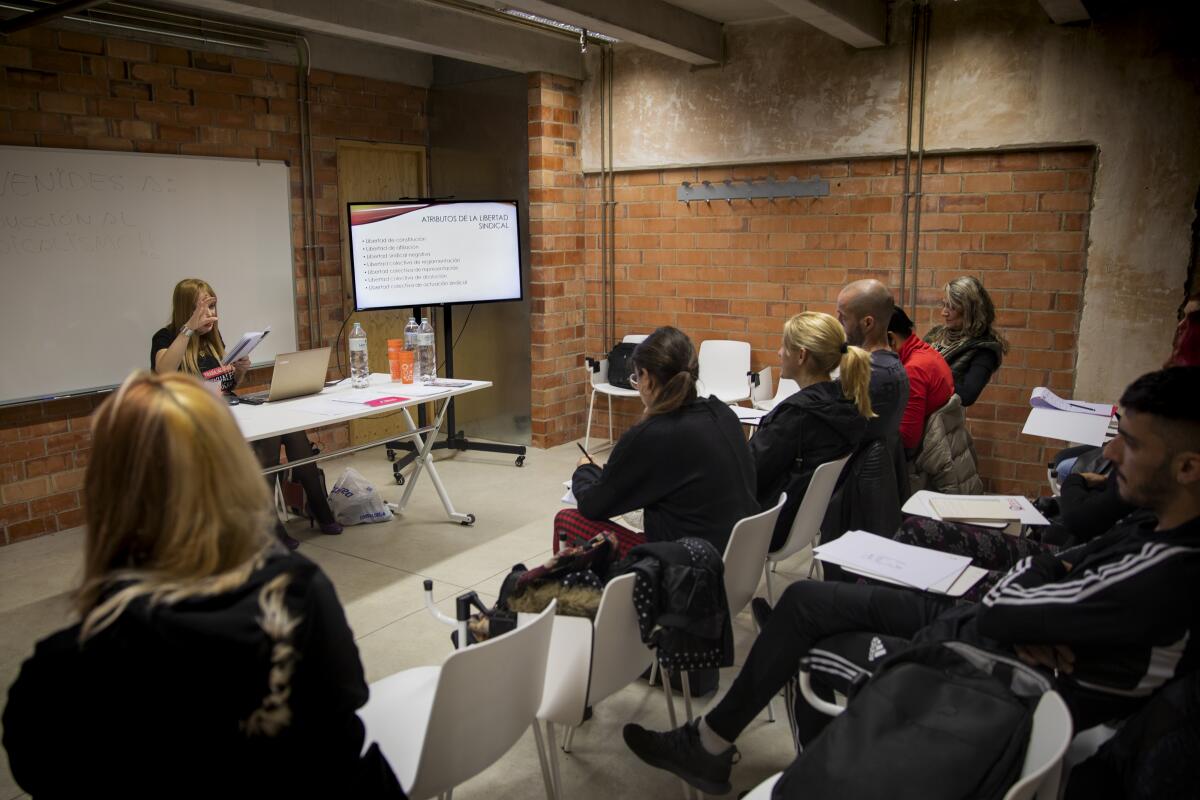These sex workers are fighting for union rights, leaving Spanish feminists conflicted

- Share via
BARCELONA, Spain — An angry voice blared from a megaphone at the back of the college lecture hall even before the guest speakers — sex workers — had said a word.
Students at the University of Barcelona, about 20 of them, shouted “Prostitution is slavery!” and other phrases to show their opposition to anything the speakers wanted to share about their lives, proposed labor union or rights.
“Fuera proxenetas!” a woman yelled. Out with the pimps.
After about 30 minutes, the protesters exited the lecture hall, leaving the sex workers shaken but not deterred.

Members of the Organización de Trabajadoras Sexuales, a sex workers group known as OTRAS that advocates for prostitutes’ rights, have faced other, similar opposition as they have traveled to campuses across Spain in recent weeks to make the case for a sex workers union. At times, students or other observers call the group members pimps — or lobbyists. Many consider them anti-feminist.
The confrontation in Barcelona in mid-November illustrated the deep divisions among Spanish feminists over prostitution — between those who view sex work as fundamentally exploitative and those who see it as a legitimate profession.
The debate has reached the national arena: Prime Minister Pedro Sánchez, a self-proclaimed feminist, has thrown his weight behind anti-prostitution groups and vowed to crack down on the sex business, including punishing clients. A movement of women known as abolicionistas — abolitionists — has gained traction in recent years by likening prostitution to slavery.


Within Europe, Spain operates somewhere between places such as Sweden, where the purchase of sex is illegal, and the Netherlands, where prostitution is legal and regulated. In Spain, procuring or trafficking people for sex is illegal, but in theory, a person — most sex workers are women — won’t be penalized for selling sex.
In reality, prostitutes say, Spain’s laws create a legal gray zone that gives power to third parties, such as nightclub owners, who often force prostitutes to work long hours for little compensation. Money generated by selling sex is included in the country’s GDP, accounting for about $20 billion annually, according to a 2014 European Parliament study.
To fight exploitation, in 2018 OTRAS applied for union status from Spain’s Labor Ministry, which approved the group as the nation’s first sex workers union. But that same year, Spain’s Constitutional Court annulled the union’s statutes, arguing that the relationship between prostitutes and their clients was not based in labor. Sánchez and abolitionists applauded the decision.
The sex workers group appealed. As it awaits a decision, its members are poring over union manuals and legal texts to fine-tune their arguments, giving talks and hosting debates around the country. Among their key issues are the right to sick leave when working with third parties such as clubs, maternity leave and a standard workweek of about 40 hours.
“Everyone wants rights,” said Conxa Borrell, the group’s secretary-general and a prostitute for 13 years. “We aren’t asking for anything surprising.”

Spain is considered one of Europe’s top destinations for sex tourism, according to advocates for sex workers and analysts, but official data on Spain’s sex industry is unreliable. Some studies estimate Spain has anywhere between 45,000 and 400,000 prostitutes.
In 2018, the Interior Ministry identified 128 victims of sex trafficking through workplace inspections and raids in which women were liberated and given assistance by government and nongovernmental agencies.
“We have a problem with consumption of prostitution, without a doubt,” said Ana Requena Aguilar, gender editor for eldiario.es, one of Spain’s major news organizations. “We lack current data on prostitution in Spain.... How many women are practicing prostitution? How many clubs are there, and in what situation are these women? How many trafficking victims are there?”
Although prostitution is decriminalized under Spain’s current laws, some municipalities nevertheless crack down. Some towns and cities use a 2015 citizens’ safety law, commonly know as the “gag law,” to fine women thousands of euros for selling sex.
Other cities, such as Barcelona — where OTRAS is based — have passed their own citizens’ safety laws. After Barcelona began enforcing its ordinance in 2006, a series of police raids cleared many streets and flats of prostitutes.
But in 2015, prostitutes found an ally in newly elected Mayor Ada Colau, a feminist who ordered a moratorium on the ordinance’s enforcement.
Many streets are now devoid of prostitutes. Sex workers can cultivate clients online, through social media or agencies.

An exception is Carrer d’En Robador, a street still widely known around the city for prostitution — and, in sex worker circles, for some of the women there.
A few dozen prostitutes called Putas Libertarias — libertarian whores — own three flats on Carrer d’En Robador, to which women contribute rent for work, and hold regular meetings to discuss neighborhood and work issues.
The anarchist, anti-capitalist collective formed more than a decade ago in response to the public safety ordinance. Its members consider themselves among the city’s most vulnerable sex workers.
They are not interested in forming a union. Instead, they believe the best way to curb exploitation is by banding together.
The women in the collective take care of one another, said Ana, a 58-year-old sex worker originally from Rio de Janeiro who did not want to use her last name for privacy reasons. She keeps her cellphone turned on all night, in case one of the girls — as she fondly calls younger sex workers — has a problem with a client, feels sick or just needs to talk.
“My fight,” she said, “is in the street.”
Bernhard is a special correspondent.
More to Read
Sign up for Essential California
The most important California stories and recommendations in your inbox every morning.
You may occasionally receive promotional content from the Los Angeles Times.












